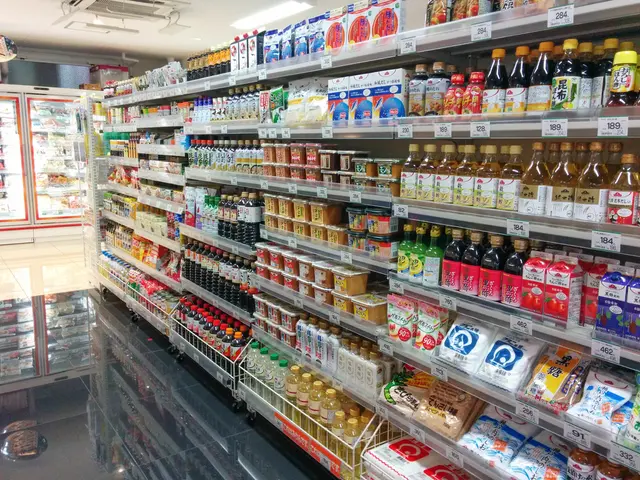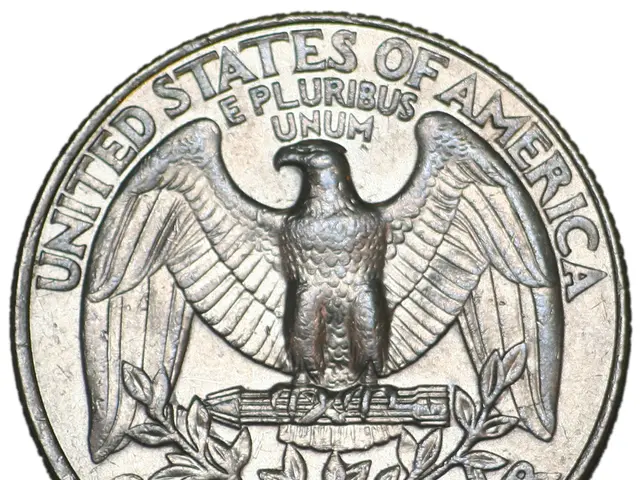Venezuela's State-Owned Petrochemical Enterprise Moves Towards Privatization as Sanctions Intensify
Rewritten Article:
Mexico City, Mexico, March 10, 2025 (Our Hub) — Monómeros, a Venezuelan agrochemical company, has sought approval from Colombia's Corporation Superintendency to sell its assets to Colombian fertilizer company Nitrofert, marking a significant milestone in the privatization of the once state-owned entity.
The impetus behind the sale by Venezuela's government comes as a tactic to dodge a pending crackdown by the US Treasury Department. The Venezuelan agrochemical firm, a subsidiary of Pequiven, currently operates under sanctions waivers issued by the Office of Foreign Assets Control that are due to expire this year. Given the White House's recent decision to intensify coercive measures against Venezuela, it's expected that this waiver will not be renewed.
Last week, the Monomeros board sent a letter to Colombia's corporate overseers, requesting permission to sell its assets. This move underscores Caracas' determination to transfer ownership of the agrochemical concern.
Initially established as a joint endeavor between Venezuela and Colombia, Monomeros transitioned to becoming fully owned by Venezuela's Pequiven in 2006. The subsidiary plays a pivotal role in supplying fertilizers, as well as other agrochemicals, to Colombian coffee, potato, and palm oil producers—alleviating agricultural input prices, which indirectly supports rural livelihoods. Consequently, Colombia's President Gustavo Petro has previously expressed firm opposition to any potential sale.
"The privatization and sale of Monomeros will drive up prices for primary agricultural goods in our countries," read a public letter published by Petro during the closing months of 2024. Bogotá was reportedly exploring financing options for a state buy-out of Monomeros but there has been no reported progress as of yet.
Colombia's Corporation Superintendency, which has previously intervened to monitor the company due to its importance in Colombia's food production, must approve the sale. Former Colombian Energy Minister Amilkar Acosta Medina shared his expectations that the sale would stir tensions with Washington due to the potential influx of money to a Venezuelan state-owned company.
The rumored buyer is Nitrofert, a company led by Venezuelan national Jorge Pacheco, who is believed to have close ties to the Colombian far-right and the Venezuelan opposition, specifically to hardline figures such as Leopoldo López and his protégé Juan Guaidó, the former self-proclaimed "interim president" of Venezuela.
Nitrofert is linked to Nitron Group, a US-based trader specializing in fertilizer products. Nitron Group stands as the second-largest distributor of agrochemical inputs worldwide. The acquisition of Monomeros would further boost Nitrofert's influence over the fertilizer market and strengthen its grip on the Colombian market.
Historically, Monomeros struggled under the leadership of US-backed hardline opposition. During its tenure under successive Guaido-appointed boards, the company was marred by scandals and allegations of corruption, which significantly impacted its productivity and caused difficulties for Colombia's rural farmers.
Edited by Ricardo Vaz in Caracas.
Enrichment Data:
- Monómeros and Nitrofert: A potential sale of Monómeros to Nitrofert could have significant implications for both companies and their respective countries.
- Economic Implications:
- Venezuela: If the sale bolsters Venezuela's financial resources, it might come at the cost of reduced control over strategic assets.
- Colombia: Should Colombia acquire Monómeros, its agricultural sector could potentially benefit from increased access to resources for fertilizer production.
- Political Implications: This transaction could have geopolitical ramifications, influencing relationships among Colombia, Venezuela, and potentially the U.S. due to ongoing sanctions on Venezuelan assets.
- Sanctions and Legal Challenges: U.S. sanctions against Venezuela could complicate the sale process, as transactions involving US entities or the US financial system might face hurdles.
- Regional Agricultural Impact: Enhanced fertilizer production could benefit agriculture not only in Colombia and Venezuela but also in the surrounding region.
- The Venezuelan agrochemical company, Monómeros, is in discussions with Colombia's Corporation Superintendency to sell its assets to Colombian fertilizer company, Nitrofert, a move that could have substantial implications for both companies and their respective countries.
- If the sale of Monómeros to Nitrofert bolsters Venezuela's financial resources, it might come at the cost of reduced control over strategic assets, particularly in the agrochemical industry.
- Should Colombia acquire Monómeros, its agricultural sector could potentially benefit from increased access to resources for fertilizer production, indirectly supporting rural livelihoods.
- This transaction could have geopolitical ramifications, influencing relationships among Colombia, Venezuela, and potentially the U.S., particularly given the ongoing sanctions on Venezuelan assets.
- The sale process could be complicated by U.S. sanctions against Venezuela, as transactions involving US entities or the US financial system might face hurdles, leading to potential legal challenges. Additionally, the company's history of scandals and allegations of corruption under former self-proclaimed "interim president," Juan Guaido, raises concerns about its future management and regional agricultural impact.









